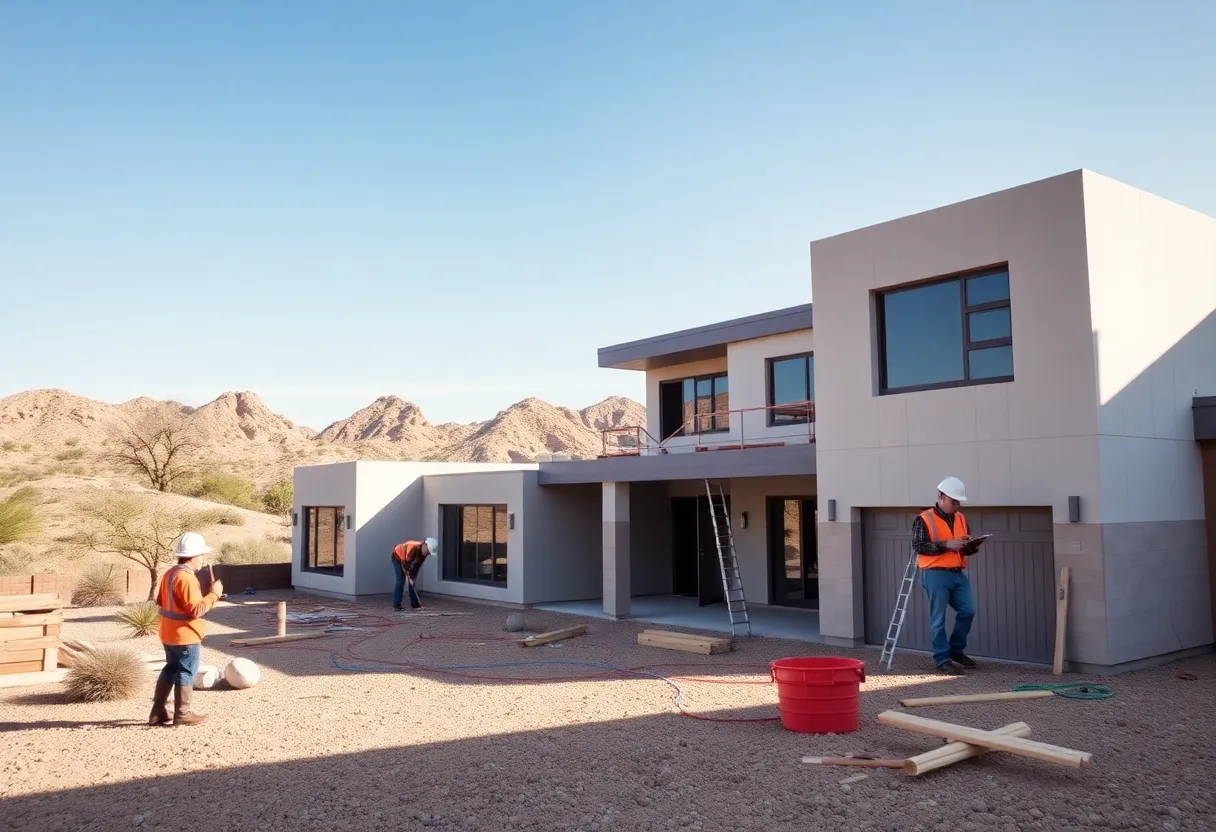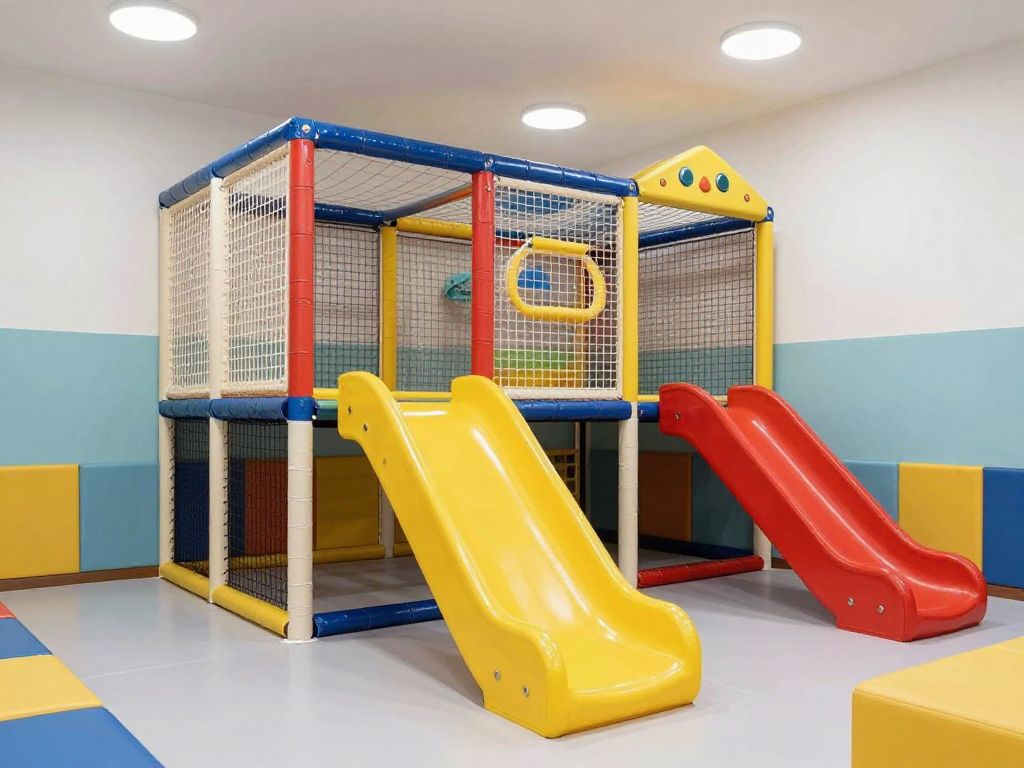What Are the Key Considerations for Selecting a Phoenix Home Builder?
1. Reputation and Experience
Choosing a home builder in Phoenix starts with assessing reputation and experience. A builder’s reputation acts as a reflection of trustworthiness, reliability, and quality of work. Prioritize those with positive reviews, longstanding community presence, and a history of satisfied clients. Reputation often correlates with consistent performance and customer satisfaction.
Experience is equally vital. Builders with years of hands-on involvement tackle unexpected challenges more effectively and ensure smoother project management. Their familiarity with local conditions and construction nuances enhances the home’s durability and adherence to standards.
Depth of industry knowledge translates into fewer mistakes, better problem-solving, and a more predictable building process. When evaluating options, seek references, testimonials, and past project examples to verify their track record.
2. Licensing and Insurance
Confirm that the builder holds all required licenses and certifications mandated by Arizona authorities. Proper licensing indicates compliance with state regulations and building codes. Additionally, ensure adequate insurance coverage, including general liability and workers’ compensation. This shields you from potential legal or financial liability in case of accidents, damages, or injuries during construction.
Working with insured builders also suggests professionalism and responsibility, minimizing your risk exposure. Ask for proof of licenses and insurance documents before signing any agreement.
3. Portfolio and Past Projects
Review the builder’s portfolio of past work meticulously. Visiting completed homes, either virtually or physically, provides insight into craftsmanship, design consistency, and attention to detail. This step helps determine if their work aligns with your aesthetic preferences and quality expectations.
If possible, tour model homes or ask for references of recent clients. Analyzing their projects reveals their capacity to execute your vision and adhere to deadlines and budgets.
4. Communication and Customer Service
Effective communication is non-negotiable in successful home building. The builder should be responsive, transparent, and proactive, keeping you informed at each stage. Prompt responses, clear explanations, and a willingness to listen are signs of a client-focused approach.
Consider how well the builder addresses your questions and whether they provide detailed, understandable updates. Smooth communication reduces misunderstandings, fosters trust, and ensures your home reflects your desires.
5. Transparency in Pricing and Contracts
A reputable builder provides comprehensive, detailed estimates that break down all costs: materials, labor, permits, and potential extras. Transparency in pricing creates a clear budget framework and helps avoid unexpected expenses.
Thorough contracts should outline scope, timelines, payment schedules, and terms for change orders. Read agreements carefully, and demand clarity on any ambiguous clauses to protect your financial interests.
6. Customization Options
If personalized design is important, inquire about the builder’s flexibility in customization. Proven ability to modify layouts, select materials, and incorporate your preferences ensures your future home is truly tailored to your lifestyle.
Ask about their process for handling design changes, upgrades, and special requests. A flexible builder can balance your vision with practical constraints.
7. Warranties and After-Sales Service
A solid warranty policy demonstrates confidence in their workmanship. Ensure the builder offers coverage for structural defects and structural components for an appropriate period post-completion.
Evaluate their after-sales responsiveness—how quickly and effectively they address issues that emerge after move-in. Post-construction support indicates their commitment to client Satisfaction and long-term relationships.
8. Construction Timelines
Clarify the project timeline, including start and completion dates. Realistic timelines help you plan your move and manage expectations.
Discuss how the builder handles delays and unforeseen hurdles. A proactive builder will communicate promptly and have contingency plans to minimize disruptions.
9. Site Visits and Model Homes
Visiting model homes or completed projects allows you to assess craftsmanship, material quality, and design consistency. Touring the actual construction site enables you to monitor progress and ask real-time questions.
This direct engagement provides confidence in the builder’s process and attention to detail, ensuring your home meets expectations.
10. Financial Stability
Financial stability is critical. A stable builder reduces risk of project abandonment or delays due to bankruptcy or cash flow issues. Long-term projects require significant upfront investments, which stable companies are better equipped to manage.
Investigate their financial background, payment practices, and reputation among lenders and suppliers to gauge stability.
11. Knowledge of Local Building Codes
Arizona’s unique climate and construction standards necessitate familiarity with local codes and zoning regulations. An informed builder ensures your home complies with safety, environmental, and legal standards, avoiding costly corrections or legal complications later.
12. Strong Network of Subcontractors
A reliable builder maintains trusted relationships with skilled subcontractors—electricians, plumbers, roofers, and more. These relationships facilitate efficient project management, quality work, and problem-solving.
Ask for a list of subcontractors and evaluate their qualifications and reputation within the industry.
13. Flexibility and Adaptability
Every project faces unforeseen challenges. An adaptable builder can find creative solutions and adjust plans without sacrificing quality or timelines. Flexibility minimizes disruptions and keeps the project on track.
Assess their approach to handling change orders and unforeseen circumstances before entering a contract.
14. Site Visits and Model Homes (Repeated)
Repeated for emphasis: Visiting model homes or existing projects offers critical insights into the builder’s craftsmanship. Tour the construction site during different phases to monitor progress and ask questions. Such involvement ensures alignment with your expectations.
15. Post-Construction Support
Post-sale support reflects the builder’s commitment to long-term client satisfaction. Confirm if they offer warranties, maintenance tips, and prompt responses to issues after move-in. This ongoing support enhances your investment’s value and comfort.
16. Environmental Considerations
If sustainability is part of your vision, seek builders experienced in eco-friendly construction practices. They can incorporate energy-efficient appliances, sustainable materials, and green design principles to reduce environmental impact.
17. Local Recommendations
Leverage local industry relationships. Real estate agents, lenders, and inspectors often have insights and referrals for reputable builders. Local collaboration fosters trust and ensures your project benefits from community knowledge.
18. Quality Subcontractors
The caliber of subcontractors directly affects your home’s quality. Inquire how the builder evaluates and qualifies their subcontractors, including licensing, experience, and reputation. Do some independent research on these specialists to verify their credentials.
19. Building Materials
Choosing appropriate materials is especially crucial in Phoenix’s desert climate, where heat, sunlight, and dry conditions influence durability. Reputable builders utilize weather-resistant, energy-efficient materials designed specifically for local circumstances. Material quality affects long-term performance, maintenance, and aesthetics.
20. Site Visits and Model Homes (Reiterated)
Site visits remain a key step. They allow you to see progress, quality, and adherence to designs. Observing construction firsthand helps identify potential issues early and fosters confidence in the builder’s craftsmanship.
21. Financial Stability (Reiterated)
Stable financial backing ensures the project’s seamless completion. It also reflects the likelihood that the builder can honor their contractual obligations, manage costs, and withstand economic fluctuations.
22. Knowledge of Local Building Codes (Reiterated)
Familiarity with local statutes guarantees that your home conforms to legal standards from the outset. This prevents costly rework or delays related to code violations.
23. Strong Network of Subcontractors (Reiterated)
Having a robust subcontractor network ensures timely delivery and quality control. It enables efficient troubleshooting and adaptability when challenges arise during construction.
24. Flexibility and Adaptability (Reiterated)
Adaptability in responding to unexpected obstacles is vital. A flexible builder maintains project momentum, accommodating design tweaks or supply issues without compromising deadlines.
25. Post-Construction Support (Reiterated)
Effective after-sales service guarantees ongoing satisfaction. Builders who stand behind their work provide peace of mind and a smoother transition after moving into your home.
26. Environmental Considerations (Reiterated)
Eco-conscious builders can help reduce your carbon footprint through sustainable practices. They incorporate energy-efficient systems, insulation, and eco-friendly materials tailored to the desert environment.
27. Local Recommendations (Reiterated)
Referrals from local peers offer reliable insights. Community reputation often correlates with project quality and professionalism. Gather feedback from trusted sources to refine your selection.
28. Quality Subcontractors (Reiterated)
Subcontractor quality directly affects construction outcomes. Ask how the builder evaluates their subcontractors’ skills and reliability, and research their credentials independently. High-quality subcontractors enhance overall home quality.
29. Building Materials (Reiterated)
Material selection tailored to Phoenix’s climate pays dividends. High-grade, weather-resistant, and energy-efficient materials prolong the home’s lifespan and reduce operational costs.
30. Site Visits and Model Homes (Reiterated)
Multiple visits provide ongoing reassurance and clarity. Observations at different stages highlight workmanship and adherence to specifications, helping you make informed decisions.
31. Financial Stability (Reiterated)
Verify the builder’s financial health through references, creditworthiness, and job history. Stability minimizes the risk of project delays or failure due to economic instability.
32. Knowledge of Local Building Codes (Reiterated)
The builder’s compliance with local codes ensures legality and safety. It also streamlines approvals, avoiding costly delays or modifications.
Frequently Asked Questions
What should I look for in a Phoenix home builder’s reputation?
Seek positive reviews, verified references, and a history of completing projects on time and within budget. Reputation reflects reliability and craftsmanship quality.
Why is licensing important when choosing a builder?
Licensing ensures the builder complies with state laws and safety standards, protecting you from legal issues and inferior work.
How can I evaluate a builder’s past projects?
Visit completed homes, review portfolios, and request references. Assess craftsmanship, materials, and overall quality firsthand.
What are key signs of good communication from a builder?
A responsive builder who provides timely updates, clear explanations, and actively listens to your needs demonstrates effective communication skills.
Why is financial stability of a builder important?
Financial stability indicates the builder’s ability to complete your project without interruptions due to bankruptcy or cash flow issues.
Key Features Comparison Chart
| Feature | Importance | What to Assess |
|---|---|---|
| Reputation & Experience | High | History, reviews, past projects |
| Licensing & Insurance | Critical | Verify licenses, insurance coverage |
| Portfolio & Past Work | High | Quality, style, craftsmanship |
| Communication | High | Responsiveness, clarity |
| Pricing Transparency | High | Detailed estimates, clear contracts |
| Customization Options | Moderate | Flexibility in design and materials |
| Warranties & After-Sales | High | Warranty coverage, service responsiveness |
| Construction Timelines | High | Realistic schedule, delay handling |
| Site Visits | High | Progress monitoring, quality checks |
| Financial Stability | High | Financial background, reputation among partners |
Author: STAFF HERE PHOENIX WRITER
The PHOENIX STAFF WRITER represents the experienced team at HEREPhoenix.com, your go-to source for actionable local news and information in Phoenix, Maricopa County, and beyond. Specializing in "news you can use," we cover essential topics like product reviews for personal and business needs, local business directories, politics, real estate trends, neighborhood insights, and state news affecting the area—with deep expertise drawn from years of dedicated reporting and strong community input, including local press releases and business updates. We deliver top reporting on high-value events such as the Waste Management Phoenix Open, Cactus League Spring Training, and Arizona State Fair. Our coverage extends to key organizations like the Greater Phoenix Chamber of Commerce and Visit Phoenix, plus leading businesses in technology and healthcare that power the local economy such as Intel and Banner Health. As part of the broader HERE network, including HERETucson.com, we provide comprehensive, credible insights into Arizona's dynamic landscape.





